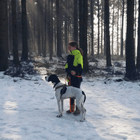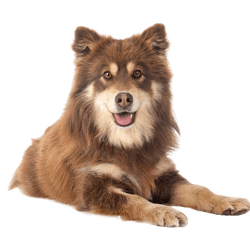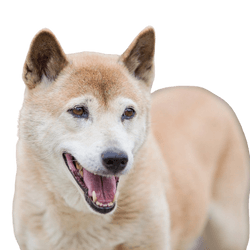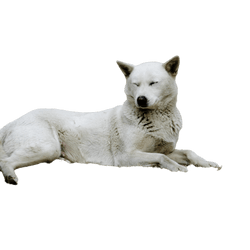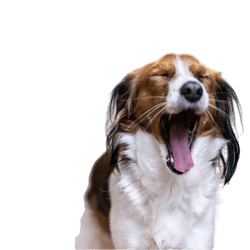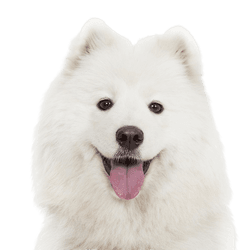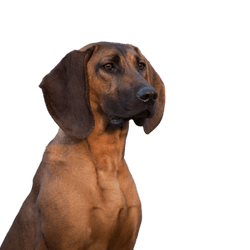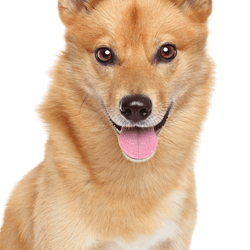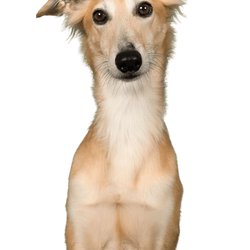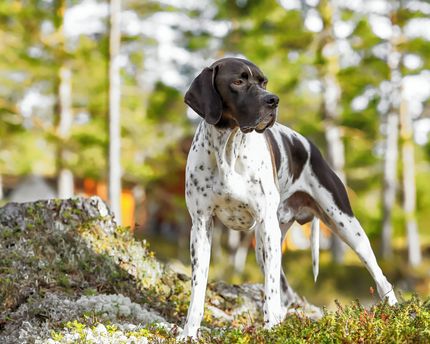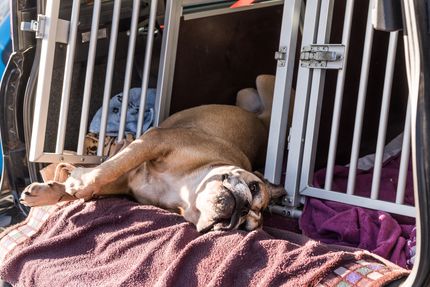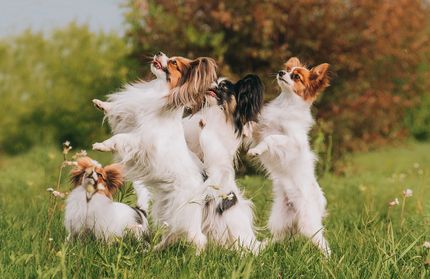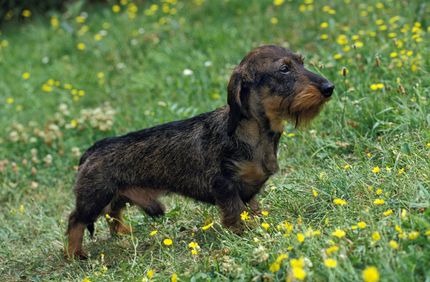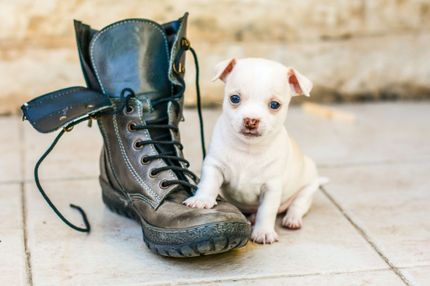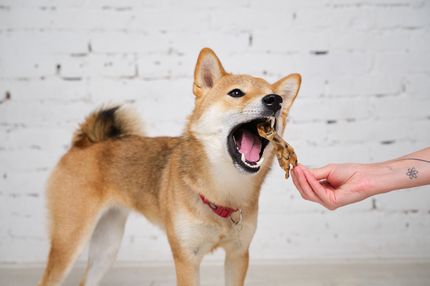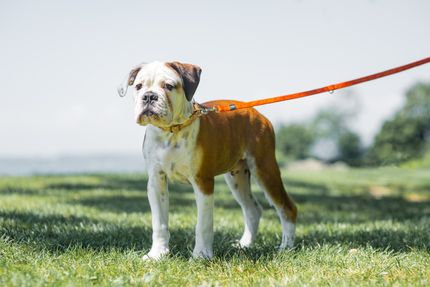Facts & Origin
Origin and history
For centuries, the Norrbottenspitz was an indispensable companion for people in the harsh regions of northern Scandinavia. It was not only used to hunt small game and birds, but also to protect the house and farm. High-quality furs, for example from martens, sables and ermines, were once an important commodity and these dogs helped the hunters to earn a living.
After the Second World War, however, interest in fur hunting declined sharply, and as fur prices fell, the Norrbottenspitz also became less important. The breed almost completely disappeared and the Swedish Kennel Club declared it temporarily extinct. Only ten years later did it emerge that some of these dogs were still living as farm and guard dogs in remote areas of Norrbotten. Thanks to the commitment of a few breeders, the breed was preserved and officially recognized again in 1967.
Use in the past and today
For centuries, the Norrbottenspitz was an indispensable companion for people in the harsh regions of northern Scandinavia. It was not only used for hunting small game and birds, but also to protect the house and farm. High-quality furs, for example from martens, sables and ermines, were once an important commodity and these dogs helped the hunters to earn a living.
After the Second World War, however, interest in fur hunting declined sharply, and as fur prices fell, the Norrbottenspitz also became less important. The breed almost completely disappeared and the Swedish Kennel Club declared it temporarily extinct. Only ten years later did it emerge that some of these dogs were still living as farm and guard dogs in remote areas of Norrbotten. Thanks to the efforts of a few breeders, the breed was preserved and officially recognized again in 1967.
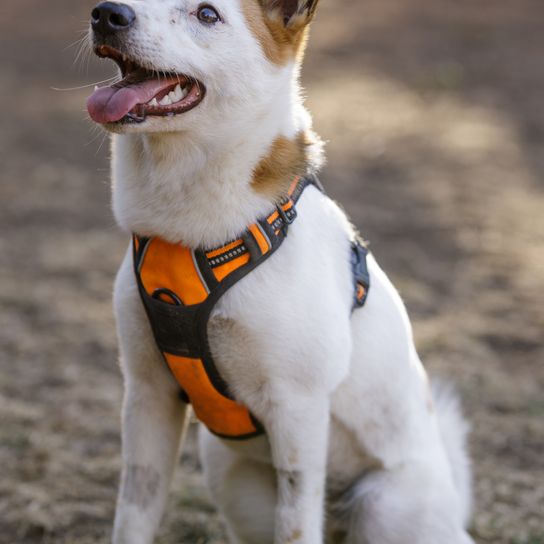
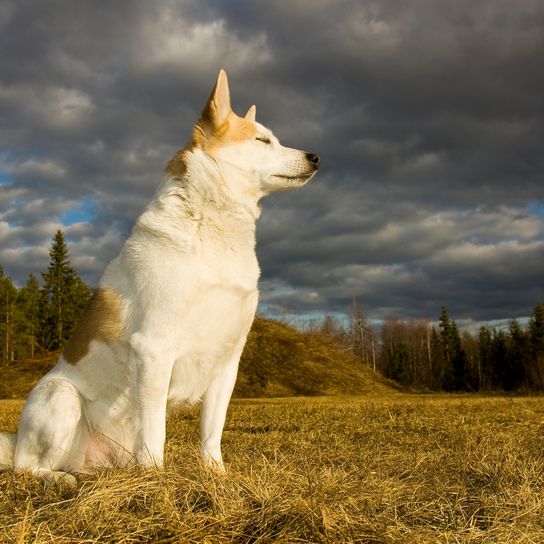
| Alternate Name | Norrbottenspets, Pohjanpystykorvat |
| Origin | Sweden |
| Life expectancy | 14 - 17 years |
| Care requirements | low-maintenance |
| Activity level | average to high |
| FCI group | Nordic Hunting Dogs |
| AKC group | Miscellaneous Group |
| KC group | not recognised |
Attitude, character and temperament of the breed
Typical character traits
As a hunting dog, the Norrbottenspitz is courageous, intelligent and persistent. It is characterized by an attentive and alert nature, but remains friendly and social. Its high degree of independence makes it a skillful hunter that can be used for bird hunting as well as for tracking moose or fur animals.
Despite its pronounced hunting instinct, it is not an aggressive dog, but a loyal and balanced companion that can also be kept as a family dog with the right training. However, it requires clear leadership, as it can sometimes appear stubborn due to its independent way of working.
Character and behavior
The Norbottenspitz is very social and affectionate. It forms a close bond with its family and prefers to be with them at all times. Its most important traits:
- Vigilance: He is an excellent guardian of the house and warns of strangers.
- Adaptability: Despite his energy, he can adapt well to different living conditions as long as he gets enough exercise.
- Friendliness: It is usually friendly and tolerant towards children and other animals - however, early habituation is necessary.
Conclusion: A versatile hunting dog with a strong character
The Norrbottenspitz is a dog with great stamina, intelligence and independence. It is an excellent hunting, guard and companion dog, but requires an experienced handler as it is highly independent.
His friendly and alert nature makes him a pleasant family dog, provided he is sufficiently challenged physically and mentally. With its agile stature, elegant appearance and alert temperament, it is a fascinating dog breed that is a reliable partner both in hunting and in everyday life.
Character
Usage
Care requirements
Grooming the Norbottenspitz is generally uncomplicated, but a few points should be borne in mind: Its dense, medium-length coat should be brushed regularly, especially during annual shedding periods. It is also important to bathe him only when necessary so as not to remove the skin's natural oils.
The claws should be clipped regularly and the ears checked for cleanliness.
Health overview
The Norbottenspitz is generally a robust dog, but like all breeds it does have certain health vulnerabilities: A regular veterinary examination is recommended to ensure that any health problems are detected and treated early.
Breeding information
When breeding the Norbottenspitz, particular attention should be paid to health and temperament:
- Breeding requirements: There are specific breeding requirements and standards set by clubs and organizations.
- Health checks: Before breeding, dogs should be tested for common diseases in order to minimize the spread of hereditary diseases.

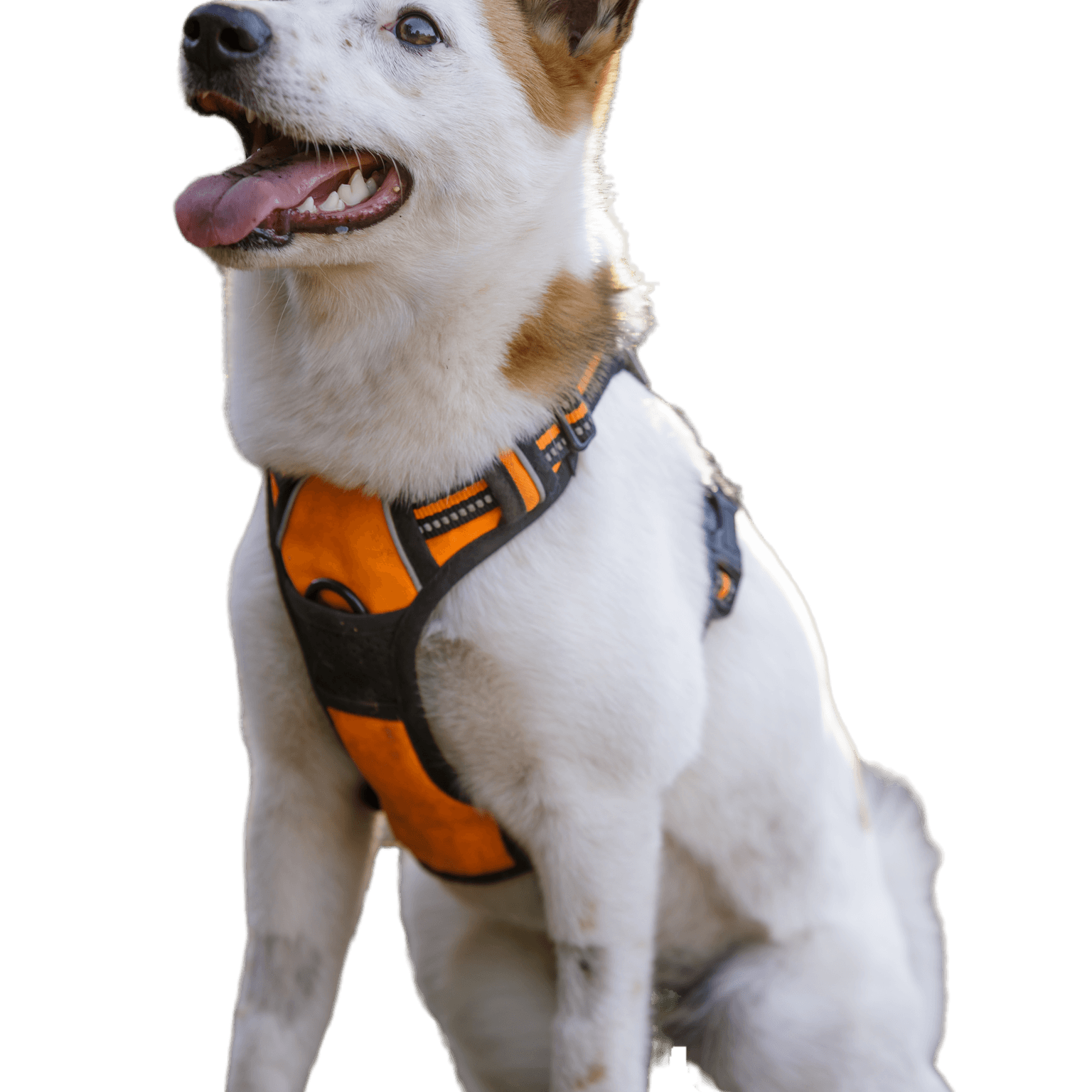
Small, agile and alert
The Norrbottenspitz is a small to medium-sized dog with a slightly rectangular build. It is athletic, muscular and extremely agile. Particularly striking is its upright posture, which conveys a self-confident and alert expression.
The males reach an ideal height of 45 cm, the bitches about 42 cm, whereby a tolerance of ± 2 cm is allowed.
Head and facial features
The head of the Norrbottenspitz is strongly built and well proportioned. Its shape tapers evenly towards the nose, giving it the typical wedge-shaped appearance of a Nordic dog. The skull is comparatively broad in relation to the body size, with a slightly domed forehead. The stop is visible but only moderately pronounced, giving the dog an open and alert expression.
The nose is black, the muzzle of medium length and narrowing towards the tip, but never pointed. The thin, close-fitting lips and the well-developed jaws ensure a strong bite. The scissor bite is complete and functional, ideal for the work of a hunting dog. The medium-sized, almond-shaped eyes are slightly slanted and radiate intelligence and alertness. Their dark brown color underlines the alert look.
The high-set, upright ears are a particularly characteristic feature. They are larger than average, with a hard structure and slightly rounded tips. This ear position emphasizes the dog's constantly alert and attentive expression and reinforces its ability to react immediately to noises in its environment.
Build and musculature
The neck of the Norrbottenspitz is elegantly arched, muscular and of medium length, giving it a graceful but powerful appearance. The withers are well defined and merge into a short, straight and elastic back. This structure gives it exceptional agility and springiness. The loins are short and broad, while the croup is slightly sloping and strongly muscled.
The chest is neither excessively broad nor too narrow, but balanced so that the dog maintains maximum efficiency of movement . It is deep enough to ensure good lung capacity and reaches just below the elbows. The belly is only slightly tucked up, allowing the dog to maintain its athletic appearance without losing stability.
Another striking feature is the high-set tail, which is carried in a high arch over the back. It curls loosely so that the tip touches the side of the thigh. When stretched, it reaches just below the hock.
Limbs and movement
The limbs of the Norrbottenspitz are strong, well-muscled and perfectly adapted to its agile build. The forelegs are straight and parallel, which gives it stability. The shoulders are well laid back and close to the body, giving it exceptional agility .
The hind legs are also strongly developed and parallel, with a distinct angle between the thigh and pelvis. The knee joints are strong and ensure a stable stance. The paws are small, compact and well arched, with sturdy pads that provide secure footing on rough terrain.
His gait is light-footed, free and expansive , and he moves with impressive ease and agility, always maintaining a stable topline. When moving, he displays an elegant, springy dynamism that reflects his natural hunting disposition.
Coat and colors
The Norrbottenspitz has a dense stock coat that protects it from wind and weather.
- The undercoat is fine and dense, while the guard hair is hard, short and straight.
- The longest hair is found on the neck, the back of the thighs and under the tail, while it is shorter on the muzzle and the front of the legs.
- The base color is always pure white, combined with clearly defined markings in various shades of red and yellow.
- Black markings are permissible, but not ideal.
| Fur length | short |
| Fur | flat coated |
| Ear shape | Standing Ears |
| Tail | rolled up |
| Anatomy | rugged |
| Size ♀ | 40 - 43 cm |
| Weight ♀ | 8 - 12 kg |
| Size ♂ | 43 - 46 cm |
| Weight ♂ | 11 - 15 kg |
| Suitable For | - |
FAQ
-
The Norrbottenspitz originates from Sweden and is one of the Nordic hunting dogs. It was originally used for hunting small game and birds, especially in the northern regions of Scandinavia, where it proved itself through its endurance and adaptability to the harsh climate.
-
This breed is one of the smaller Nordic dogs.
- Males: 45 cm at the withers, about 12-15 kg
- Females: 42 cm at the withers, slightly lighter than males
-
Yes, the Norrbottenspitz is a friendly, outgoing and playful dog that integrates well into an active family. He forms a close bond with his humans, but is also independent and self-reliant, which is why he needs clear leadership.
-
The Norrbottenspitz is intelligent and eager to learn, but also has an independent personality. It can be trained well with consistent but loving training and positive reinforcement. Early socialization is important to control its sometimes suspicious nature towards strangers.
-
Yes, his hunting instinct is very pronounced. He was specially bred as a loud hunting dog that tracks down game and indicates it by barking. He should therefore only be walked off the lead in secure areas unless he has been reliably trained to recall.
-
With early habituation, he can get on well with other dogs and even cats. However, small animals could be seen as prey, which is why special care should be taken here.
-
The Norrbottenspitz has a dense, weatherproof coat that only needs to be brushed occasionally. It sheds more during the moulting season, so more frequent brushing is necessary.


